“Naija no dey carry last’”
is a popular idiom we Nigerians like to use to describe our ‘can do’ spirit. Unfortunately that didn’t sound so true for the Nigerian contingent of athletes to the just concluded Athletics World Championships who failed to win a single medal. But there was one Nigerian albeit a British-Nigerian for whom this was very true. Two of Britain’s Women’s 4×100 relay team who won bronze medals are under Ayodeji Akande’s sports management team. And he has many sportsmen and sportswomen involved in other sports as clients too – ranging from swimming to gymnastics to taekwondo. Even a casual observer would have noticed that there were far more Nigerians representing other countries at the Championships than those representing Nigeria. Gone are the days when we may just see one or two representing the USA and the UK. At these Championships we saw Nigerians representing Team Ireland, Team Italy, Team Bahrain and Team Germany. But why should one be surprised? They will represent countries that are willing to sponsor their chosen career and provide them with the best chance of success. One has always thought that it would be good if some of our high networth individuals and corporate bodies could take up this responsibility as there is nothing that evokes that guttural sense of patriotism quite as much as when one’s countryman succeeds in international sports. The euphoria of Tobi Amusan breaking the world record for the women’s 100m hurdles is yet to fully abate. We don’t need to wait for them to first succeed before then adopting them as brand ambassadors. There is something that appears a little opportunistic in that. But heck! What do we know? Sports is big business and the sooner we come to that realisation in Nigeria, the better. Well, Ayodeji certainly knows that so lets hear his inspiring story.
You were quite a sportsman yourself. Which sports did you play and to what level?
Yeah. I love sports. Sport has been a part of my life for a long time. As a child, I was playing football, and then probably around the age of 13,14, I began to get into athletics and did the 100 meters. And I was a good young athlete. Junior athlete. Yeah. Went to a number of regional national championships. But I was always injured. I had a lot of injury issues, which kind of kept me from really going to that next level. So I actually stopped competing in university, ran out around 2021, and just focused more on the business side of sport and building out a career there.
Congratulations are certainly in order as a few of the athletes under your management found themselves on the medals podium at the recently conducted Athletics World Championships held in Budapest, Hungary. Please tell us who they are and the events they took part in.
Thank you. We had a great championships at the world championships. We had three of our clients there. Eugene Amo Dadzi UK, 100 meters sprinter, 9.93 seconds. This season he made the semifinals in his first ever World Championships.
He placed 10th in total, which is amazing. So, top ten in the world. And for a guy who only started the sport in 2019 and has gone on to become one of the fastest men in European history, it’s a fantastic achievement and very big things to come from him. We then had Asha Philip and Imani-Lara Lansiquot. Both of them are female sprinters from Great Britain and they both meddled in the four x 100 meters relay, um, with their bronze medal. So great that we have athletes in the mix prior to the Paris Olympics next year and we’re looking forward to the next twelve months ahead. It’s going to be big and exciting.

Please tell us about some other sportsmen and sportswomen who you manage? Because I know they are not all athletes.
So, yeah, we have a number of athletes who are not based in athletics or track and field. We’ve got a gymnast called Alice Kinsella. She’s an Olympic, world European and Commonwealth medalist from the UK. Very exciting times for her. In the last 18 months, she’s won every medal, every major. So, yeah, looking forward to seeing what Paris 2024 has in store. We also represent Alice Dearing, who is an Olympic marathon swimmer.
She became the first Black lady to swim for Great Britain at an Olympic Games and has had huge impact culturally in the UK around that. And she’s also set up an organization called the Black Swimming Association. She’s half Ghanaian by parents. And then we have a lady called Alia Powell, who is a taekwondo fighter, martial arts, and she is a two time world medalist. She’s only 20 years old. So exciting times are coming up for her because it’s her time now to shine, we believe. And we also have a lady who does judo who used to represent Great Britain. Now she represents Austria and is named Lulu Piovesana. And, yeah, another really big prospect in the world of judo. So we’ve branched out to look at athletes across the spectrum of Olympic sports.
Are all the sportsmen and sportswomen under your management British? Any Nigerians amongst them?
Predominantly yes in terms of our athletes we have a lot of athletes who are well British by nationality but their their heritage is a mixture from African and Caribbean you know the Eugene and my dad’s he runs a Great Britain but he’s gone in via his parents and we have a number of clients who have got you know dual nationality with the Caribbean islands as well we do have a former former athlete stroke kind of global personality called Mike Edwards he’s a national champion high jumper for Nigeria but he is now focusing a lot on lifestyle entrepreneurship and we also support him as well so he’s a you know really built out a big audience and community throughout Nigeria and he was he was a finalist on Big Brother Nigeria a couple years ago as well as a number of activations so yeah we have ambitions who continue to grow our roster across the world and for sure I see no reason why Nigeria will not be a place to for that growth with for the right clients of course
Here in Nigeria, sports is still generally seen as a hobby, something you do in your spare time, a leisurely activity. Though we’re seeing some very gradual changes. How is it seen in the UK?
In the UK, I guess sports have multiple levels. There’s sports for leisure, for participation, which is more for people who want to maybe get more fit and just get healthy, but certainly not on a competitive level. But obviously you do have people who do sports competitively still in a leisurely and a participatory way, but it’s not an elite or professional level sport and then you have the elite and professional sports side, which is very vibrant. There’s a lot going on there with things like football and the Premier League and athletics and tennis. So, yeah, every sport has a lot of depth and I think perhaps in the UK there is an appreciation that if you are good at a sport, it can be a job and a career that you can embark on. I think people are encouraged to pursue careers in sports if the talent is there.
When did you as an individual begin to see it as business and something you would like to take up as a career?
I started seeing. I mean, I always had a recognition that sports is business. I’ve loved sports all my life. I think even when I was 16 years old I said I wanted to run a sports agency one day and I’m now 32 years old and I’m doing it.
So it’s something which has always been in my thinking, always been in my heart. And I went to university and studied business in sports and I graduated from there in 2012 and over the last eleven years have been blessed to work in sports. And four or five years ago I set up my own company to support professional athletes with their commercial endeavors and help them to have longevity with their careers and to help provide brands and sports organizations with consultancies across sports marketing. So yeah, this is my life. I love it. It’s very full on, very intense. I think running a business is not something which is for everybody. It’s a lot of risk, it doesn’t stop. Yeah, you’re always on. Even when you have to take a break or you’re on holiday, you’re always on because you have to find a way to ensure that the business continues and survives and thrives. But you obviously try to find pockets of time to relax when you can and to have moments when you can because everyone needs to have a break. But after that breaks over, trust me, you’ll be straight back into it.
Tell us what sports management is all about as it’s still a relatively novel concept here in Nigeria.
Sports management can mean various different things to different people, but in my context, we are a representation agency in which we support professional athletes with their off-field endeavours. So that can be endorsements, partnerships, sponsorships, comms, PR, helping them launch companies, supporting them with their philanthropy or charitable endeavours. Anything to do with their life off the field of play, off the track, outside of the arena, we’re there to support them and ensure that they are maximising their careers commercially. And as well, we look after and support sports organisations and help brands in the consulting capacity across the world of sports, marketing and entertainment. So that’s what we do. There are organisations in our agencies in Nigeria who I know are doing stuff, but for sure, it’s not as many. But I think as talent continues to fry, that’s going to only grow and commercial opportunities are going to continue to make themselves be very well known across Africa.
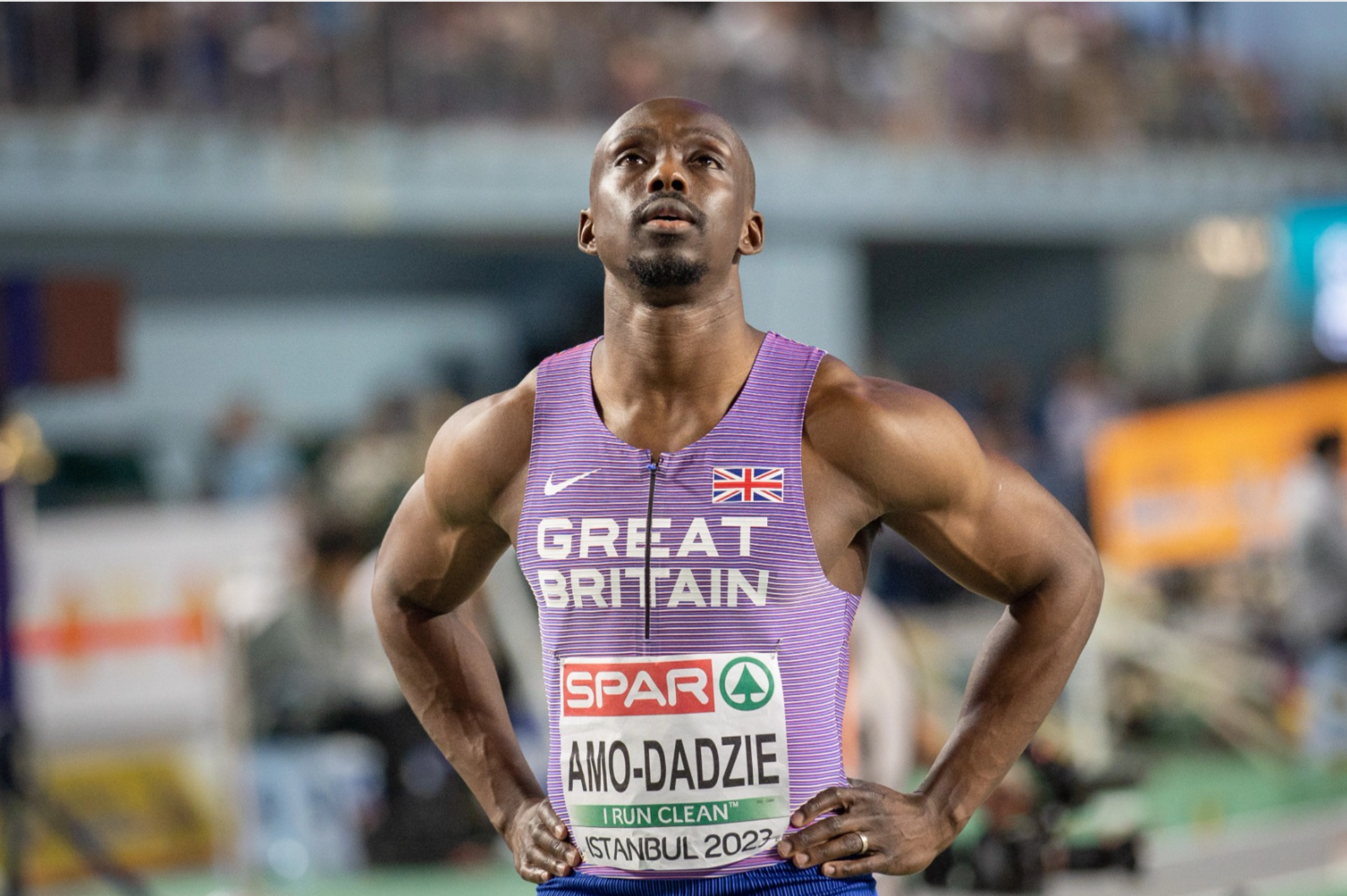
At the just concluded Athletics World Championships, one noticed a phenomenon which is certainly not new but which appears to be increasing from World Championships or Olympics to the other. We now have far more athletes of Nigerian descent representing other countries than those representing Nigeria. Off the top of my head one remembers seeing “Nigerians” representing Italy, Bahrain, Ireland, Germany and as usual, several members of the USA and Great Britain teams were also of Nigeria origin. This must mean that Nigerians are naturally gifted athletes and yet the Nigerian team didn’t win a single medal. Why do you think this is? And what can be done if we want to see better results?
So Nigerians have a tremendous amount of natural ability and talent. The reality is a lot of Nigerians do represent other countries, whether that’s because they were born in that country and their parents are Nigerian, or more so that they have relocated, decided to take up citizenship in, or at times even decide to run for that country. It’s an interesting one, I think. It’s not new, but certainly it’s something that I don’t think is decreasing. I think it would be great to see the Nigerian team, Nigerian athletics team flourish. Although this championship that has just gone wasn’t great for Nigeria, there is actually a lot of talent representing Nigeria. There’s Favour Ofili, a tremendous sprinter who I think is going to have a big future. She currently goes to Louisiana State University, LSU, I believe. A couple of men have gone under 10 seconds as well in the 100m, doing great things in the collegiate system in the US but continuing to represent Nigeria. So I think hopefully over the next few years, you will see some really high level performances. I think the issue there is the administration. I think the administration is not necessarily giving the athletes the easiest route to represent their country. For instance you do hear a lot of complaints about finances and money not being paid and bonuses not coming in and all that kind of stuff. So I think if the administration can be improved it would help to bring more athletes into the system.
Have you toyed with the idea of managing a Nigeria based athlete sometime in the future?
Yes, we certainly look to support Nigerian based athletes in the future. At the moment, in the short to medium term, we’re looking at UK Europe and the US. And of course the majority of our clients are from black or Caribbean descent. It’s not a deliberate thing but it’s something that of course I’m passionate about, to ensure black athletes are represented in excellent ways. As a black British Nigerian myself, I’m obviously passionate to see Nigeria thrive and Nigerians thrive. So yes, we would love to explore representing Nigerian athletes and we know many already, but it’s all about waiting for the right time where there are really strong marketing opportunities, commercial opportunities and performance levels which are at the level of Olympic medalists, gold medalists and so on. That’s the kind of talent that we’re looking to identify. And I believe there are some young ones coming through who have that potential to be very much in the mix, as I mentioned before. So that’s an interesting opportunity for the future.
This is a two part question. One, what are the main challenges you face in sports management? Two, tell us how it feels to see one of your sportsmen or sports women succeed. Is there a sense of fulfillment?
Yes, there are many challenges in most businesses, there’s always a challenge and for sure, running an athlete management business, you’re always thinking about the ways you can drive new revenue to your clients. And I think making sure that everybody is being pushed and everybody is being maximized for their partners is an ongoing challenge and task. Its something that you overcome but certainly it’s something that you are constantly thinking about because it’s nonstop in terms of their careers and their lives. They keep going, they keep going, keep going. So we have to keep going and keep providing new opportunities and keep helping them to seek out opportunities. And absolutely, I feel a huge amount of fulfillment when I see sportsmen and women shine on the biggest stage. They work so hard for those moments. They give everything, they make so many sacrifices. They miss a lot of other opportunities because they’re pursuing their main opportunity, which is to medal and be on the podium at the biggest events in their chosen career. So, yeah, it’s sometimes nerve wracking watching them, but at the same time very exciting and fulfilling. And it’s just a privilege to be involved and a privilege to be associated with such individuals.
___________
Ayodeji Akande is the CEO and Founder of Gateway Sports & Entertainment, a global sports marketing and athlete agency based in London.

With over a decade of experience working alongside professional athletes, global brands and leading sports organisations – Deji has a huge desire for athletes to maximise every opportunity possible within and beyond their first profession.


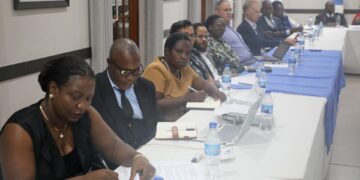
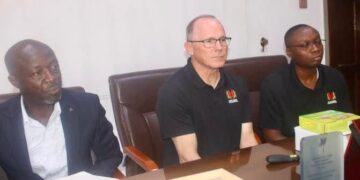


























































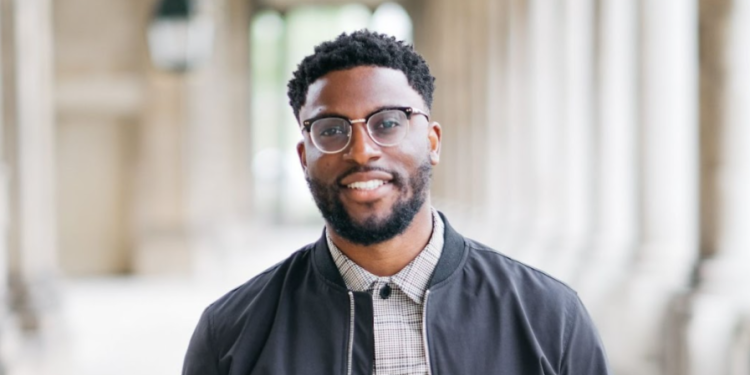




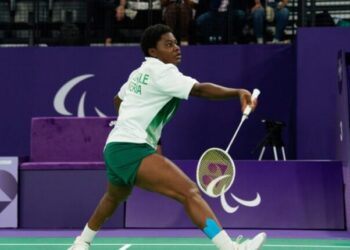
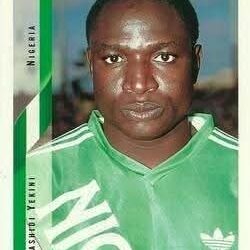
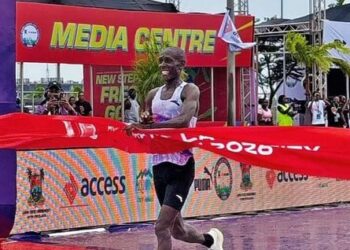
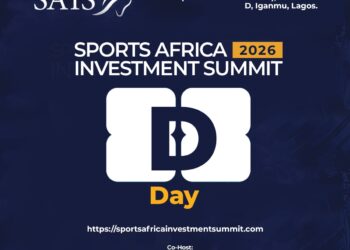
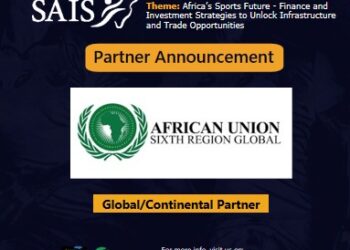
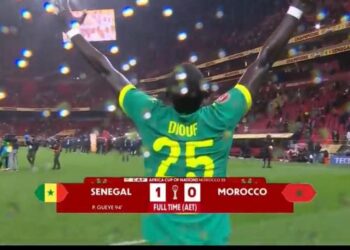










 EduTimes Africa, a product of Education Times Africa, is a magazine publication that aims to lend its support to close the yawning gap in Africa's educational development.
EduTimes Africa, a product of Education Times Africa, is a magazine publication that aims to lend its support to close the yawning gap in Africa's educational development.